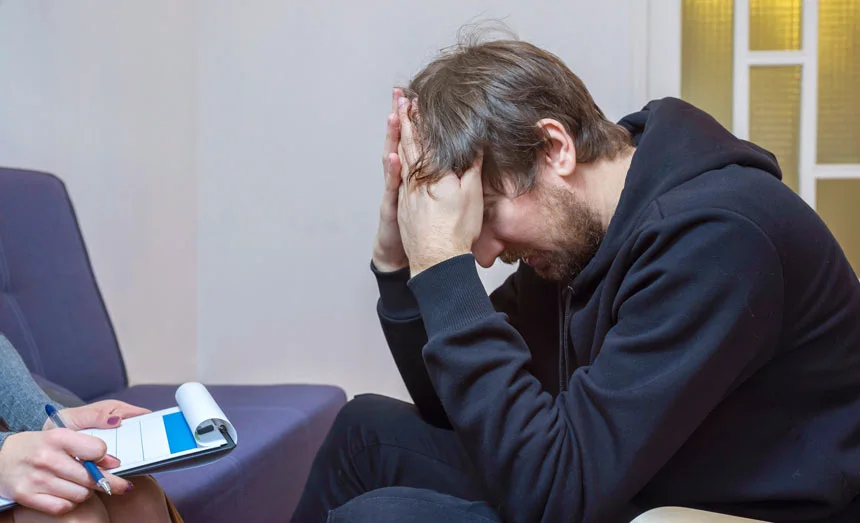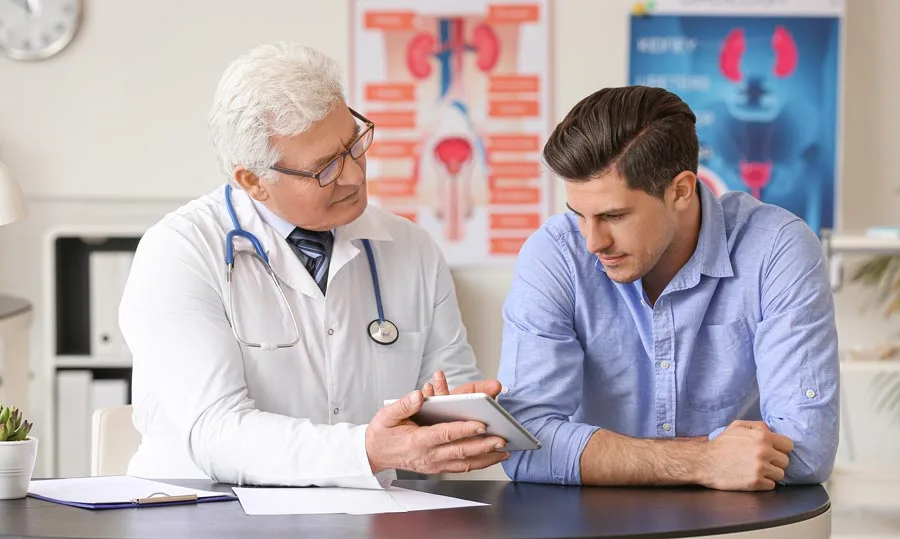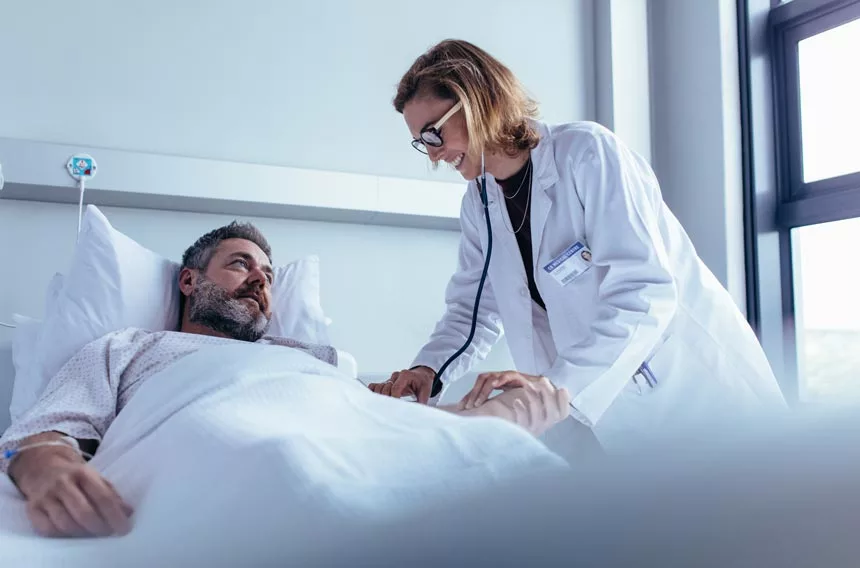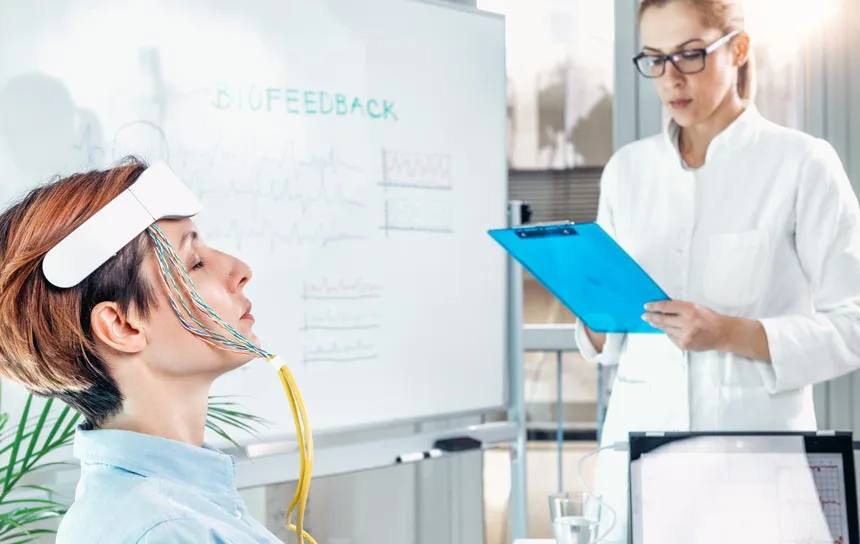Understanding Treatment for Alcohol and Drug Abuse
Table of Contents
- Understanding Treatment for Alcohol and Drug Abuse
- Who Needs Substance Abuse Treatment?
- Understanding the Relationship Between Substance Abuse and Mental Health
- The Importance of Intervention in Addiction Treatment
- The Levels of Care in Addiction Treatment
- Additional Methods of Treating Drug and Alcohol Addiction
- Can You Cure a Substance Addiction?
- Want to Learn More About Addiction Treatment?
- Medically Reviewed By
There are various addiction treatment options available for individuals to choose from today. These may include a variety of clinical, behavioral, and holistic recovery services. The levels of care a person may choose to participate in will depend on their personal situation.
When it comes to substance abuse treatment, there is no ‘one-size-fits-all’ option. Many individuals will have to utilize an integrated and comprehensive recovery approach in order to properly address all of their care needs.
Addiction recovery is no simple task; this process takes a lot of self-discipline and external support in order for individuals to be able to achieve and maintain their sobriety. However, with the right tools and assistance, long-term recovery is absolutely possible.
Starting the journey to overcome addiction can be difficult. However, it is absolutely necessary not just for the individual’s physical and mental well-being, but for their loved ones as well. Here, you can learn more about the addiction treatment process and how to get the help you need.
Who Needs Substance Abuse Treatment?
Many people may find it difficult to begin their treatment journey, often believing their alcohol or drug addiction is not severe enough to warrant professional help. In many cases, a person may not even realize their habits are considered to be addictive.
There are several signs that indicate that you or your loved one may need to seek out professional addiction treatment services. These may include:
- Lack of Control: Regularly using a substance more often or in higher doses than originally intended.
- Inability to Quit on Your Own: Repeatedly being unsuccessful in attempting to reduce or stop substance use by yourself.
- Time and Financial Losses: Spending large amounts of time and money acquiring, using, or recovering from the effects of substance use.
- Drug Cravings: Experiencing intense desires to take substances when not using, or taking less than normal.
- Interpersonal Problems: Having breakdowns in home, work, or personal relationships due to substance use.
- Loss of Interest: No longer participating in previously enjoyable activities or hobbies due to substance use.
- Self-Harm: Continuing to use substances despite this causing or worsening underlying mental health or medical conditions.
- Development of Tolerance: Having to use a substance in higher doses or more often in order to achieve the desired effect.
- Experiencing Withdrawal Symptoms: Experiencing adverse side effects when attempting to reduce or stop substance use.
If you or a loved one fits any of these characteristics, it may be a good time to begin seeking out professional addiction treatment providers and recovery services, before these habits are able to get any worse.
Understanding the Relationship Between Substance Abuse and Mental Health
In many cases, those struggling with addiction started abusing drugs and alcohol as a way of self-medicating the negative thoughts and feelings caused by an underlying mental health disorder, particularly those which have gone undiagnosed or otherwise untreated.
While their substance abuse may provide temporary relief from these symptoms, over time, these habits will only make their mental disorders worse. In some cases, individuals have actually ended up developing new or other forms of mental illness from their addictions.
Those who have simultaneous mental health and substance use disorders have what are known as co-occurring disorders, or dual diagnosis. Someone with these issues will need specialized treatment in order to overcome their addiction, as well as its underlying causes.
The Importance of Intervention in Addiction Treatment
When it comes to substance abuse treatment, the first and most important step toward addiction recovery is accepting that there is an issue in the first place. Unfortunately, this is also one of the hardest steps for many people.
Those struggling with addictive behaviors may deny the severity of these issues to themselves and others, as accepting that they have lost control of their habits can make people feel weak or ashamed.
This is where the importance of intervention comes in. This will often require family involvement, as well as the assistance of the addicted individuals’ friends and intervention specialists in order to help them understand the severity of their drug abuse problems.
The purpose of an intervention is to help all those affected by the person’s addiction to voice their concerns and feelings in a constructive and encouraging way. This can help get the addicted individual to a place where they feel ready and supported to begin seeking treatment.
The Levels of Care in Addiction Treatment
There are various levels of care a person may choose to participate in when receiving treatment for their addiction. The main recovery services used to help people struggling with addiction include:
- Medically-Supervised Detox
- Inpatient & Residential Treatment Programs
- Outpatient Treatment Programs
For many individuals, these programs will be a necessary part of their process to overcome drug and alcohol abuse. Without these levels of care, it can feel impossible to beat their addictive habits on their own, making them more prone to relapse.
Medical Detox
Medically-supervised detoxification helps to manage withdrawal symptoms for those overcoming an alcohol or drug addiction. With constant clinical supervision and support, these programs allow individuals to safely make it through the hardest part of achieving sobriety.
In some cases, medical detox will include the assistance of certain medications to further manage and prevent withdrawal symptoms, as well as ease drug cravings, significantly helping to prevent relapse.
Inpatient Treatment
For those struggling with more severe drug addiction, recovering at an inpatient treatment facility can offer them a highly structured and secure recovery environment, removed from the temptations and stressors of the external world.
Through seeking inpatient care options, individuals will be able to overcome their use of addictive substances while receiving constant professional support and access to recovery tools and resources.
Residential Treatment
Residential treatment centers serve as a sort of bridge between inpatient care and independent living. These are effective treatment options for those who have already received higher care but require further help re-adjusting to normal life.
While similar to inpatient care, residential treatment facilities offer a way for individuals to overcome their drug or alcohol abuse in a more home-like and emotionally supportive recovery environment.
Outpatient Treatment
When recovering at an outpatient treatment center, individuals will be able to receive more flexible and affordable care than they would through more intensive treatment options, such as medical detox and inpatient programs.
While these may offer several similar services to inpatient care, their clients are able to live at home throughout the duration of their recovery process. This means they can continue to maintain their regular work and familial responsibilities, while still getting the help they need.
However, this does come with a greater risk of encouraging addiction triggers and temptations. Thus, outpatient options are generally recommended for those with mild substance use disorders, or high levels of self-discipline.
Partial Hospitalization Programs
A more intensive form of outpatient treatment, partial hospitalization programs (PHPs) offer recovering individuals a treatment option that allows them to receive daily hospital-based care while being able to return home in the evening.
This may be a good treatment option for those with limited payment options, who may require more intensive care when overcoming their drug use but are unable to afford the cost of staying at an inpatient rehab facility.
Intensive Outpatient Programs
Intensive Outpatient Programs (IOPs) are another more structured form of inpatient care, allowing individuals to receive professional care and supervision by staying at a treatment center at night while managing work and family responsibilities during the day.
Additional Methods of Treating Drug and Alcohol Addiction
Treating any form of addiction will take time and effort, with every person requiring their own individualized treatment plans in order to successfully overcome their habits of alcohol and drug use.
In many cases, effective treatments for addiction will be those that address all of a person’s overall health, whether this is physical or mental. There are various different treatment approaches that may be used in addition to those listed above, including:
- Dual Diagnosis Treatment Programs
- Medication-Assisted Treatment Services
- Holistic Addiction Treatment Methods
- Recovery Support Groups
- Contingency Management Programs
Dual Diagnosis Treatment
According to the Substance Abuse and Mental Health Services Administration (SAMSHA), successful treatment for addiction will often depend on the incorporation of various behavioral therapy services as an integral part of properly addressing addictive behaviors.
These therapies are often used to treat dual-diagnosis clients, and they can also significantly help to uncover the reasons why an individual started their alcohol or drug use in the first place. They may also be an effective form of follow-up care after initial treatment.
These may include individual, group, and family therapy sessions, as well as various other behavioral therapies that can significantly help ease the recovery process for those struggling with mental health conditions, such as:
- Biofeedback Therapy
- Cognitive Behavioral Therapy
- Dialectical Behavioral Therapy
- Experiential Therapy
Biofeedback Therapy
Biofeedback therapy helps to recover individuals to better understand their body’s involuntary processes. During these therapy sessions, the individual’s treatment provider will put electronic sensors on their skin, which will monitor their brainwaves.
Once the therapist and their client better understand the way their brain works and communicates, they can then build better self-management skills that combat their addictive behaviors and the negative consequences they may have.
Cognitive Behavioral Therapy
Cognitive behavioral therapy (CBT) is one of the most popularly used behavioral therapies in addiction treatment, as this can help to recover individuals better understand their negative thinking and behavioral patterns.
Once this level of recognition is achieved, these individuals will then work with their therapist to build more positive belief systems, healthier coping mechanisms, and effective decision-making abilities that can help them better withhold their alcohol or drug use.
Dialectical Behavior Therapy
With dialectical behavioral therapy (DBT), more severe co-occurring conditions such as obsessive-compulsive disorder (OCD) or certain personality disorders can be treated alongside a person’s addiction.
This form of therapy primarily helps those with a substance use disorder to improve their self-esteem, build more effective stress-management skills, and encourage them to remove potential triggers or temptations from their surrounding environments.
Experiential Therapy
As a more non-traditional treatment approach, experiential therapy helps to recover individuals and address any potentially suppressed thoughts, feelings, or emotions that may be contributing to their use of addictive substances.
This form of therapy may include participating in various outdoor recreational activities, such as swimming, rock climbing, and hiking, just to name a few.
Medication-Assisted Treatment
Various treatment approaches will utilize medication-assisted services to further assist individuals throughout their recovery process. These medicines may be used for various reasons, including:
- Managing withdrawal symptoms
- Reducing drug cravings
- Treating co-occurring medical conditions or mental illness
- Helping prevent relapse
Medications Commonly Used in MAT
There are many medications that are often used to help treat addiction, the most popular of which are Naltrexone and Buprenorphine. These play a major role in fighting opioid addiction, helping to stop cravings and block the high produced by opioids in the event of relapse.
Other medications that are popularly used for treating addiction and preventing relapse include:
- Methadone (opioids)
- Acamprosate and disulfiram (alcohol)
- Antipsychotics and antidepressants (cocaine, meth)
Holistic Addiction Treatment Methods
Holistic modalities can be used to treat the whole individual rather than just symptoms of substance abuse. Often, these programs are useful for those who have trouble sticking to one of the other more intensive types of addiction treatment services. This may include:
- Acupuncture
- Biofeedback therapy
- Pet therapy
- Music therapy
- Nutrition classes
- Mediation
- Yoga
Recovery Support Groups
Many individuals are encouraged to participate in a recovery support group once they have completed higher levels of care. These can help them remain committed to their recovery journey and better maintain abstinence.
These can be an effective form of long-term care and may include faith-based groups such as Alcoholics Anonymous (AA) and Narcotics Anonymous (NA), which teach individuals to rely on a higher power in achieving and maintaining sobriety.
For those who are not religious or spiritual and prefer a more self-based approach to recovery, there are various non 12-step alternative support groups they can participate in, such as S.M.A.R.T Recovery and LifeRing Secular Recovery.
Contingency Management
Contingency management is a treatment program primarily based on operant conditioning principles. Typically, treatment providers will offer their clients something of monetary value as an incentive for them to discontinue their substance use.
According to the National Institute on Drug Abuse (NIDA), contingency management programs can be an effective way to treat alcohol and drug abuse, as it both actively encourages and rewards recovering individuals for continued positive behavior and healthy decision-making.
Can You Cure a Substance Addiction?
Unfortunately, addiction is not considered to be a curable disease. Rather, it is similar to conditions such as diabetes in that it is a manageable, chronic disease that can include chronic relapse.
As such, those who seek out addiction treatment resources are able to learn to avoid relapsing back to substance abuse and stay sober. Most people require long-term treatment or continuous help through multiple treatment programs in order to safely avoid relapse.
Instead of focusing on curing your addiction, you will benefit more from focusing on learning to understand it and recognize when things are going wrong. With treatment, you will be able to pinpoint when you are in danger of experiencing cravings or becoming triggered.
A lack of a definitive cure for this condition does not mean addiction will always cause problems in your life. After treatment, you will be better equipped to handle this problem and be able to protect yourself from using it again. This is why comparisons like AA vs rehab can not be fully valid, while AA can help support your recovery after treatment, it is not a substitute for medical detox nor does it generally offer supervised withdrawal by medical professionals.
Want to Learn More About Addiction Treatment?
If you or your loved one is struggling with addiction, you can call our recovery representatives with the 24/7 Find Addiction Rehabs hotline today to find a treatment program and recovery resources that can serve all of your care needs, any time of the day (or night).
We can also perform a free insurance verification to ensure that you will be able to pay for your treatment. This only takes a few minutes and can tell you the exact coverage provided by your policy and the levels of treatment you may be able to receive through your insurance provider.
Our experienced representatives have been through their own struggles and are waiting to help you through this difficult time. So please do not hesitate to call us now, so that we can help you get started on your path to achieving a happier, healthier, and successfully sober you!
Deborah Tayloe is a freelance writer specializing in health and sciences. Deborah earned a B.S.Ed. in Secondary Education/English, accompanied by a Spanish minor. Her writing expertise allows her to craft engaging, impactful articles to help people be well.
In addition, she holds a fully accredited Certificate of Natural Medicine and is a certified Herbalist. Through her understanding of complementary medicine, Deborah helps medical professionals give people the information they need to embrace natural approaches to wellness.
When she’s not working, Deborah trains for 5K races and advocates for animal rights.







